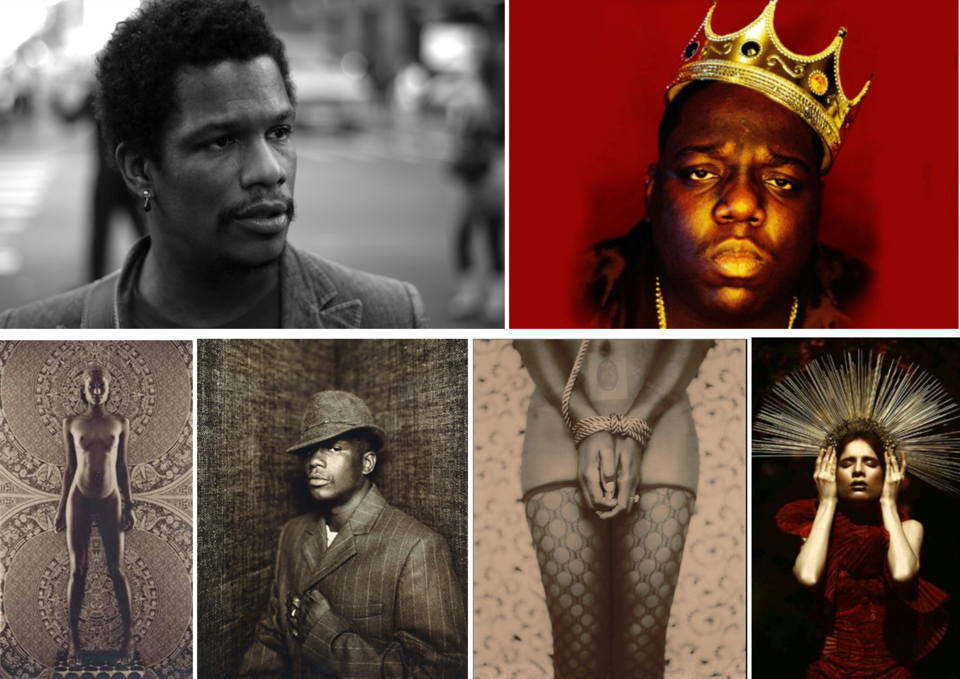Art photographer Barron Claiborne shares with BK Reader why race, religion, culture and history play such a dominant role his work.
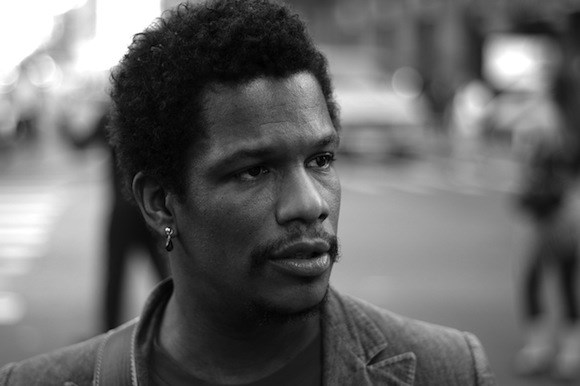
Photo: Shawn Peters
Barron Claiborne is an art photographer and cinematographer currently based in Bed-Stuy, Brooklyn. Claiborne's artwork spans more than 28 years and has been featured in galleries, at festivals, in print ads and most recently at Afropunk. Today, his artistic thumbprint is distinct: He is recognized for his visual elegance and photo-casting of black people as angels, kings and saints. His photos are rooted in folklore, mythology, symbolism and historical references.
Born and raised in Boston, Claiborne is a self-taught photographer and began taking photographs at the age of ten after receiving a camera as a gift from his mother. He works primarily in large format (8×10) and (4×5). In 1989, he moved to New York City. One of his most powerful and recognizable pieces is entitled, "King of New York" series featuring the Notorious B.I.G. donning a tilted crown. This piece might be one of the most duplicated, replicated, imitated and reimagined pieces in contemporary photography today!
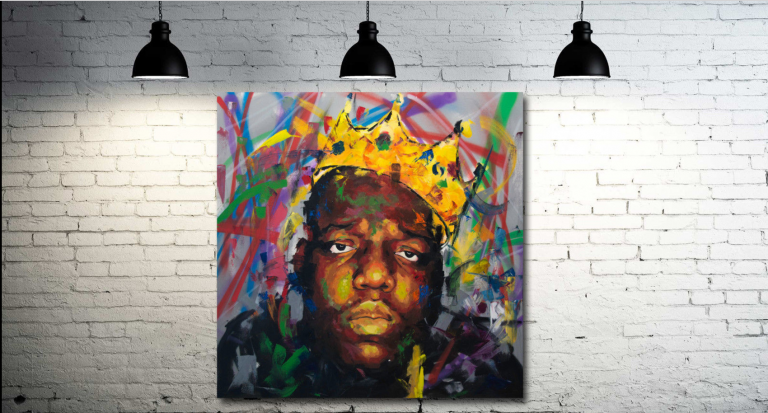
BK Reader: How does Brooklyn play a role in the art you develop?
Barron Claiborne: Well I mean, I take pictures of people from the community, for the most part (laughs). I've taken pictures since I was 10 years old. I grew up in Boston and I've lived in Brooklyn for five years, but I've lived in New York for 28 years. I mean, I haven't lived in Brooklyn that long compared to the rest of New York or places like Manhattan. But, I'm more influenced by my culture than anything else. And by history. My stuff (art) usually has to do with black people as a whole. There are a lot of black people in Brooklyn, and a lot of culture, and a lot of different people. So yes, it definitely influences me.
BKR: I noticed that you fuse religion, American imagery (African-American and Southern oral storytelling tradition) and sexuality throughout portraits in much of your art. Have these factors always played a large role in your approach to art?
BC: Well yeah, just culture in general. Since it is visual art, you know, you're drawing from everything. But I tend to draw from what I read not from a visual thing. Most of my stuff comes from historical things that I read that are kind of obscure [and] that people don't know much about, like the formation of the Christian church, stuff like that. That's what the "Saints" [series] are really based on. And most of the things are about archetypes likes kings, angels, and certain things you never see black people portrayed as. I sort of concentrate on those things.
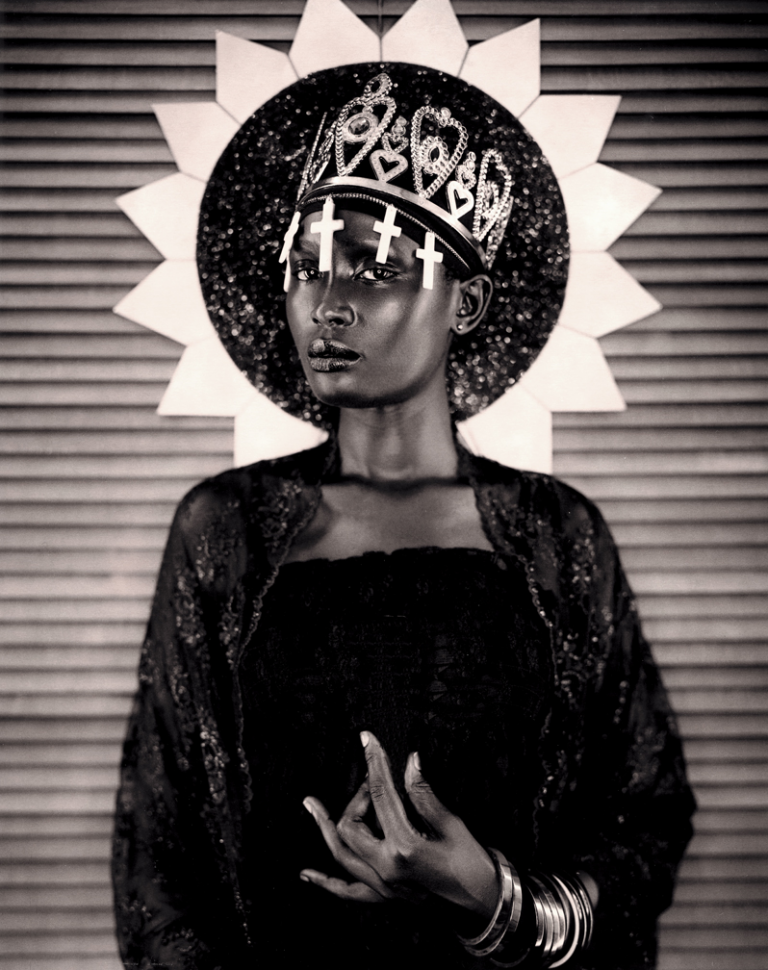
Photo Credit: Barron Claiborne
BKR: Is there a particular book that has sparked that influence or why you gravitate more towards certain archetypes?
BC: I'll say it's because there was a lack of those things. I never saw black people as angels or kings. Those are images you don't really see. They don't really exist; you have to search for them. My grandfather always used to say, you know, they don't portray black people as angels and kings and certain things. And so, I do it.
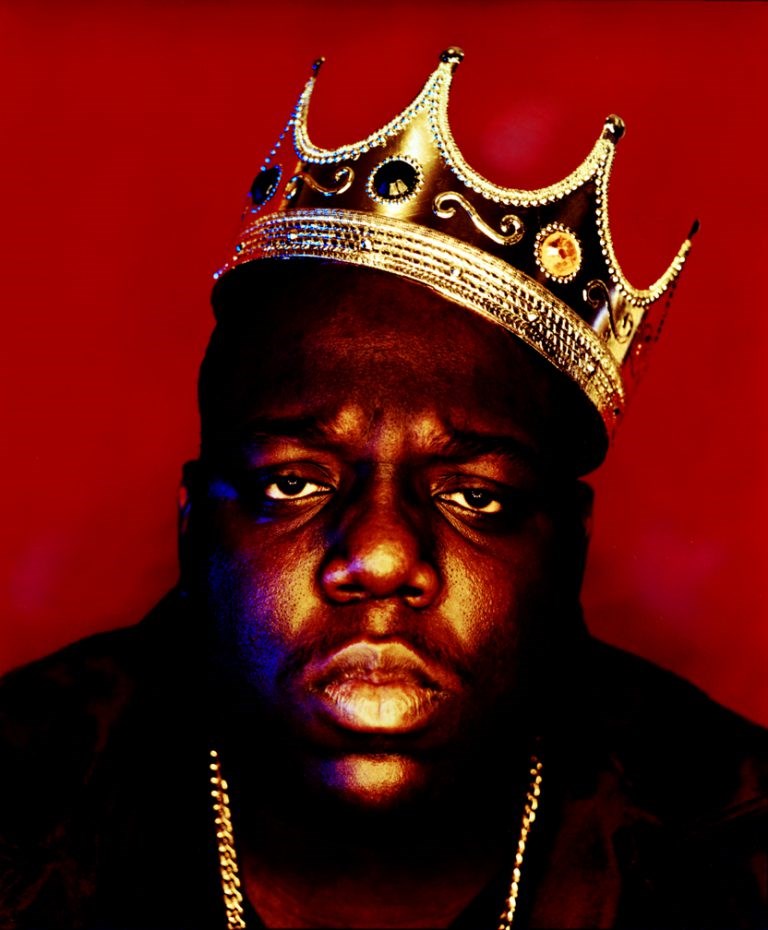
BKR: Well, how do you iconize black images? Which aspects of an image read to you as more successful in conveying a message or story, based in American and black Southern culture?
BC: You don't know until other people see it because sometimes the images I like the most, people don't like the most. And some of the images I don't think are as great, people love them. So it's really hard. Sometimes you're just doing things and you don't know why you're doing them. Some of my favorite images are just my face or, you know, I have the two Biggie images. People like the one with the crown but I actually like the one that's just his face. So it's just things like that. People see what they see in the photo. I'm just putting it out there but people make their own evaluations of what things are.
BKR: So you do very much approach photography the way storytelling does, where everybody reads the same story differently?
BC: Yeah. When people talk about art when you're at the museum, they say all this stuff about a painting, but in reality a lot of the painters painted because they needed money. And nobody knows why they did what they did because nobody ever asked them. It's just the person in the museum making up their own s--t or some s--t they read in a book. Doesn't mean it's true. It's just [a] story.
BKR: Would you prefer for your art to be remembered the way that people themselves read it, rather than how you are actually interpreting your art?
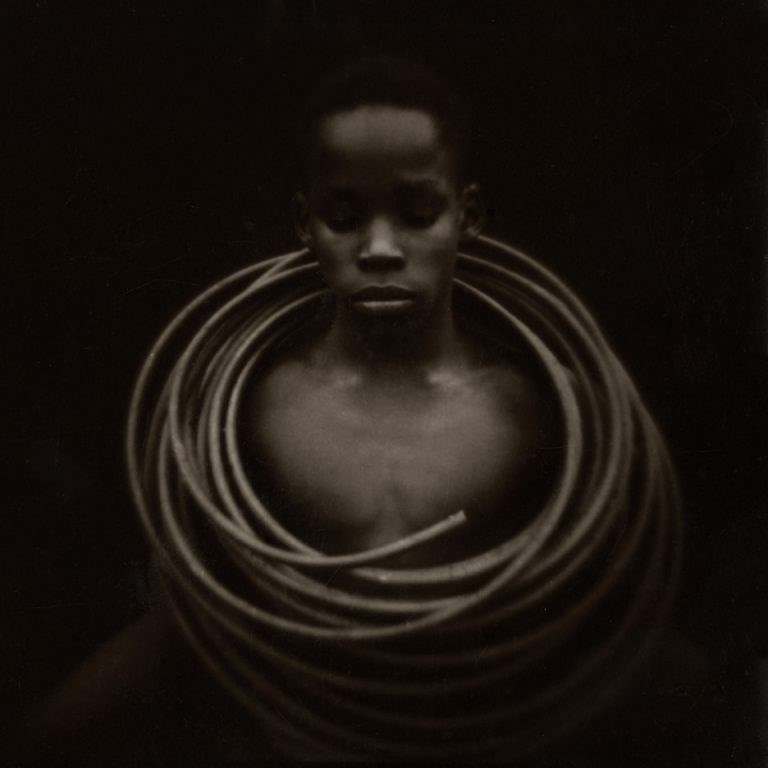
Photo Credit: Barron Claiborne
BC: Oh yeah! That's what is going to be remembered anyway. So, shows you how much I can do about it. I'm not going to be there to tell people what I thought when I took a picture. They are going to think whatever they want anyway so it's as real as that (laughs). I just let it go.
And you have to be able to just let stuff go, you know? And just not keep it so personal. And then people will tell you what they feel about it, but I don't really care what people think about it. I just do it for myself. I'm glad that people like them [images] and stuff like that, but I don't really care. I do them because I like them. And since it's visual you have to show them to other people, because what's the point of images that nobody sees. It never bothers me what they think about the image. You know like Biggie's mom doesn't like the image of him with the crown on. She won't tell me why, but I would assume it reminds her of his death.
BKR: Do you think for you, even though you say you don't care about working in that political sphere. Do you recognize or consider that you taking someone like Biggie and throwing a crown on his head and taking him out of the realm of "here's how much money I have" is political?
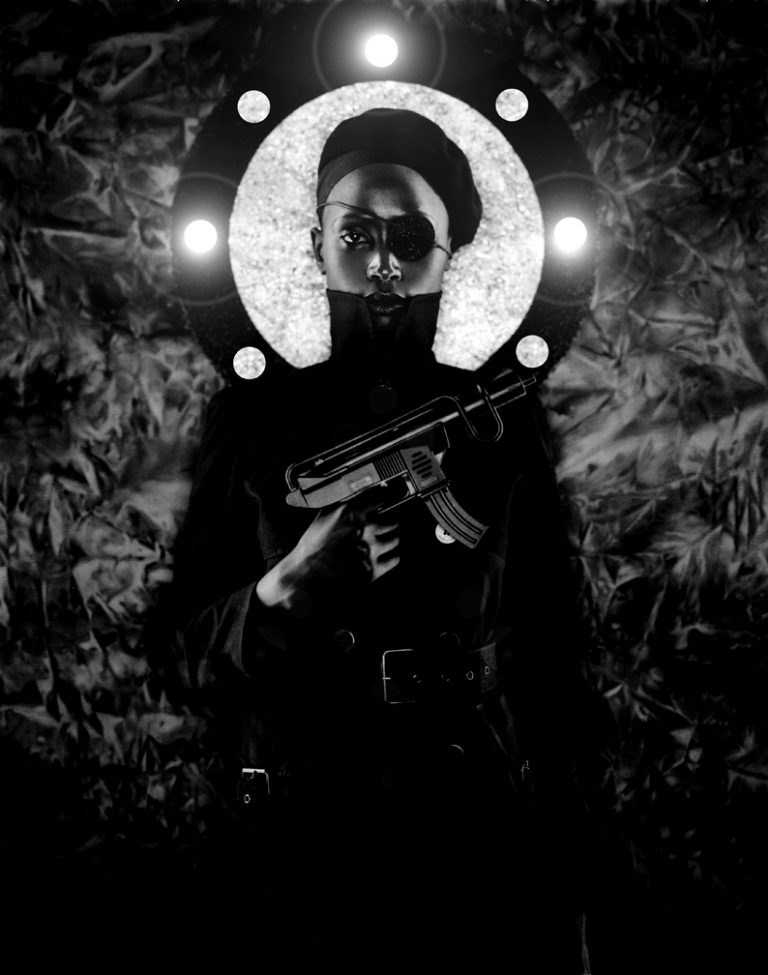
Photo Credit: Barron Claiborne
BC: I mean yeah, if someone takes it that way. It definitely can be. I think it can be political by the fact that I just like to make beautiful images and don't really care about Because growing up you see a lot of photography books about black people, but it's always black drug addicts, black gangs, like this weird... like the whole art sociology, I just always find boring. Same with literature. I don't have to read a book about a black dude.
I am a black dude. Nobody is going to write anything in the book that I don't know already. When people write these books for black people it's dumb. I'm a black man, so what is another black man going to tell me about being a black man. I'm almost 50 years old. It's stupid to me. My mom used to always say those books are written for white people.
They're not written for black people. It's just dull bulls--t. Richard Wright was writing this book about a horrible black experience while he was in Paris with a white woman sitting at a cafe drinking coffee. And that's what people won't recognize. It's just an industry. And people do it like they are fulfilling some duty. I don't think so. You just do the best you can. You help people. All that pandering to racism and white people I just find it boring.
BKR: You spoke about your mother before, and how she got you your first camera. When discussing the art of photography, you stated in Mass Appeal that "technology is watering down photography."
BC: Sure, everyone has a phone don't they?
BKR: And a DSLR camera.
BC: Well the DSLR is not as bad as the phone. It's a different thing to just have something in your pocket all the time. Most people might not go out and buy a DSLR. If you go out and buy one then you care about photography. Doesn't mean you're going to be a great photographer, but at least you cared enough to go buy a camera.
But it doesn't matter. There's always been photographers. There's some good ones and some bad ones. Everybody wants to be a director or an artist now because they just think it's cool; they don't really care, they just think the occupation is cool. They don't really care about what you do or the work. In the United States, people all want to be entertainers or directors or whatever. And that's fine, there's nothing wrong with that. It's just not going to work out for everyone.
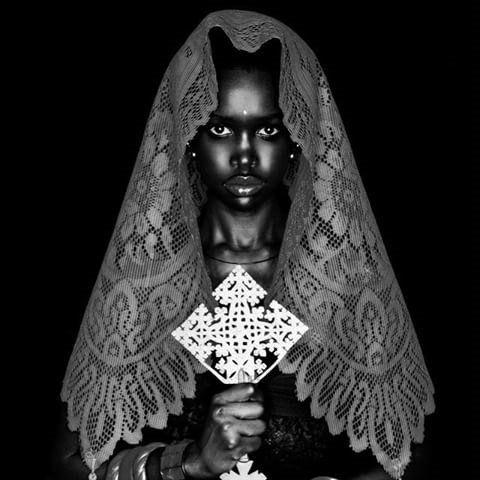
BKR: You are working with portraits. So, we are seeing real people. Does that ever play a role in how you work with your culture or your own art?
BC: I just like to portray people with dignity. I just want people to look beautiful. That's what I care about the most. All that political s--t and all that, I don't really care. It doesn't mean anything anyway. A lot of people think of artists as being really political and stuff, but I know them personally and I know a lot of it is just bulls--t. I've had regular jobs. I've worked at magazines and stuff. I didn't come from the whole academic art thing.
Because a lot of that is just bulls--t anyway. You're just pandering to collectors. You know, they like to see n---as looking stupid. And it's just the way that it is. And then there are people that fulfill their needs. But I do things for myself. For me the whole art thing isn't always a reaction to white people. I don't really care about white people. I just do what I do. I don't care what they think.
Find more of Barron's work on Instagram.

